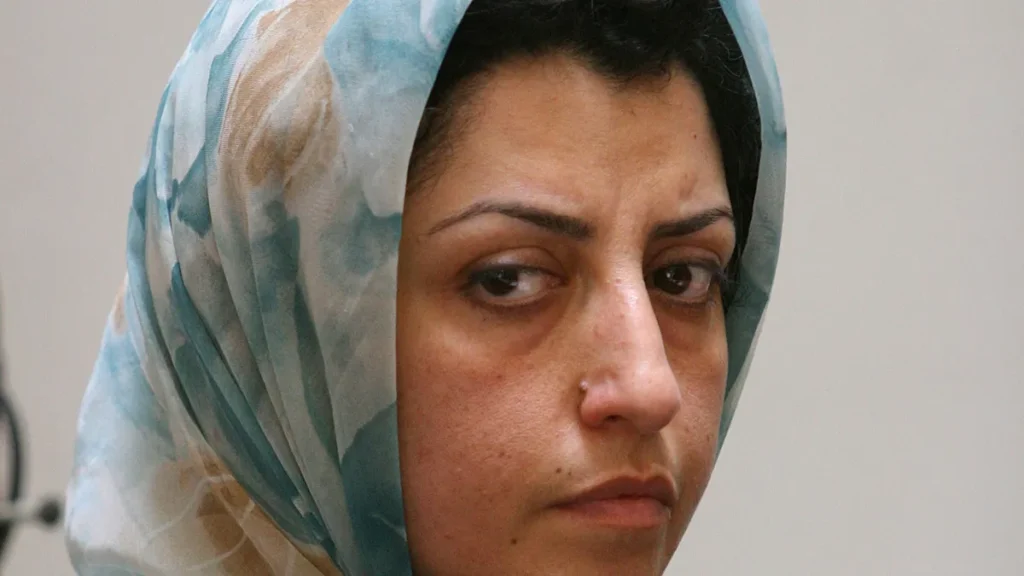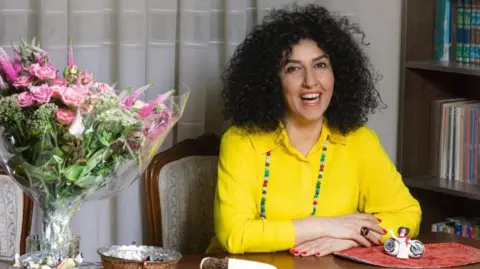Key Highlights:
On December 4, 2024, the Iranian government allowed Nobel Peace Prize winner Narges Mohammadi to leave Tehran’s Evin Prison on a three-week furlough to deal with severe medical problems. It came after her recent surgery to remove a benign tumor and a bone graft as she suffered from severe health concerns which had worsened with detention.
Background about Narges Mohammadi
Narges Mohammadi is one of Iran’s leading activists on women’s rights and opposition to the death penalty, with a record of more than two decades behind bars for her activism. Since November 2021, she has been under two separate sentences amounting to over almost 14 years for charges which included “spreading propaganda against the system” and “collusion against national security.” Since her imprisonment, Mohammadi continued to advocate but significantly, she supported 2022 protests after Mahsa Amini’s death.

Health Complications and Neglect in Medical Conditions
Her health has rapidly declined during her imprisonment. She suffered several heart attacks and, in November 2024, was diagnosed with a bone lesion that was suspected of being cancerous, and required immediate surgery. Her attorney, Mostafa Nili, revealed that the surgery was tumor resection and a bone grafting operation. Despite the severity of her condition, there have been reports that she has been denied proper medical care in prison; this has attracted international condemnation from human rights organizations.

International Campaign and Free Narges Coalition
The international community has been vocal in demanding the release of Mohammadi. In June 2024, four leading human rights and press freedom organizations united to form the Free Narges Coalition to make demands for her immediate and unconditional release. The coalition highlights that Mohammadi’s imprisonment is part of the overall persecution of human rights defenders in Iran and calls for global accountability of the Iranian government’s actions.
Temporary Release and Ongoing Concerns
While the three-week medical furlough is a welcome development, Mohammadi’s family and supporters argue that this is insufficient for her to recover fully. Medical professionals have recommended at least three months to ensure full recovery, and her permanent release is being demanded in light of the nonviolent nature of her activism and the severity of her health issues. The United Nations has also called for her immediate and unconditional release, raising concerns about her deteriorating health in detention.
Broader Consequences on Human Rights in Iran
The case of Mohammadi brings to light the broader problems that human rights defenders have with the Iranian government. Iran’s harsh treatment of dissidents, including arbitrary detention, denial of medical attention, and other human rights abuse has been widely criticized. It remains under international scrutiny where they push for a comprehensive system overhaul and respect of all fundamental human rights.
Conclusion
Narges Mohammadi’s temporary release is a critical point of intersection between health and human rights. While it gives her a momentary reprieve, it also reminds the world of the ongoing struggles that activists in Iran are facing. The international community continues to call for her immediate and unconditional release and reminds Iran to fulfill its international human rights obligations.
For Latest News Updates Click Here
